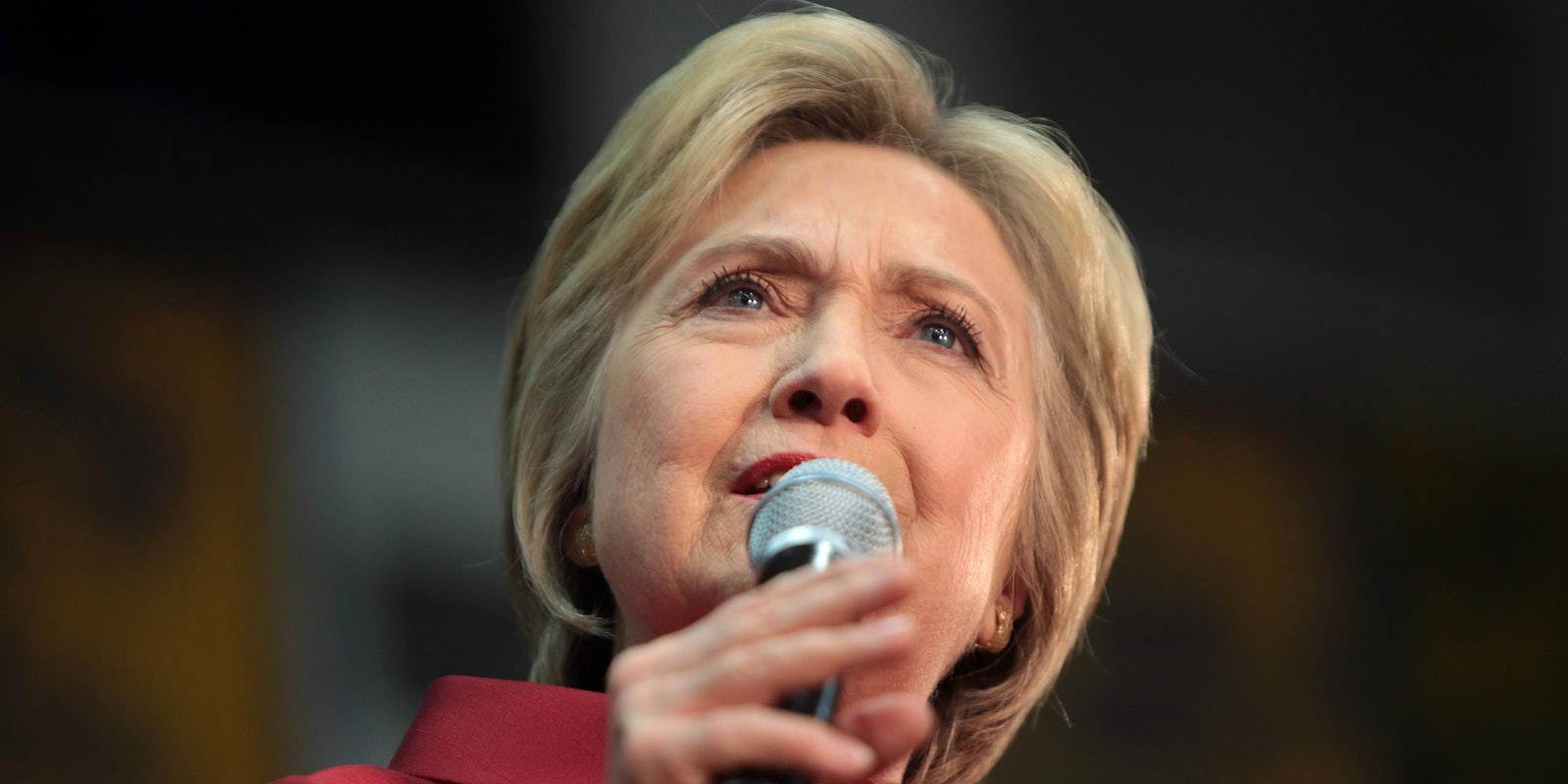Hillary Clinton has pneumonia. After Clinton was filmed stumbling into a parked minivan on Sunday, her physician confirmed the diagnosis, which follows a cough related to allergies. Despite a statement that she’s been on antibiotics and is “recovering nicely,” her political opponents are ramping up their attacks, as if, in fact, the candidate is on death’s door.
Clinton’s alleged health problems long been a focal point on far-right, conspiracy-theory fueled Twitter—used to bolster claims that she’s physically unfit for office, but moreover that she’s untrustworthy, and lying about the extent of her sickness in her ruthless pursuit of the presidency. Sunday’s episode naturally stoked the flames of such groups, who claim Clinton used a body double, and that she could have something worse than a common respiratory infection easily treated by antibiotics.
Soon after Clinton’s announcement of her pneumonia diagnosis, Breitbart.com questioned whyshe was spending time with her grandchildren if she was really battling the contagious condition. According to People Magazine‘s “exclusive” insight, many members of team Clinton are battling the bug, likely thanks to the hip open office plan at the campaign’s Brooklyn headquarters. Donald Trump also attempted to suggest the diagnosis underplayed the severity of her condition, saying, “It’s interesting because they say pneumonia, but she was coughing very, very badly a week ago.”
Rumor mill aside, the facts about pneumonia and Clinton’s symptoms and current state make it seem quite likely that 1) she has a common infection that she probably picked up off some germy human while shaking hands all day long, 2) her campaign probably isn’t really hiding some massive conspiracy, and 3) she most likely isn’t dying, at least no faster than any of us are, as we inch closer to death each day.
But don’t take our word for it. Here’s what the numbers have to say.
Clinton’s longtime physician did not specify whether or not Clinton had previously received a vaccination against pneumonia at some point, though most women aged 65 and over today have. And that’s normal! A million adults a year are hospitalized with pneumonia every year, according to the American Thoracic Society. It’s pretty common. Vaccinating against it seems legit. Regardless of whether or not Clinton has been vaccinated, the wide range of strains of pneumonia (at least 30) means that there’s always a chance of infection. And at 68 years old, there’s still a chance that Clinton is not vaccinated—seniors 74 and over are far more likely to receive the vaccination.
Of those 53,282 deaths, some 48,000 were of people aged 65 or over, with men more likely than women to succumb to their symptoms. As a wealthy white woman with access to excellent healthcare, however, Clinton’s not going to land squarely in the middle of the typical “pneumonia death” profile, despite her age.
According to the Centers For Disease Control, influenza or pneumonia was the eighth most common cause of death in 2013. The extremely old, extremely young, and those with compromised immune systems are most at risk for pneumonia deaths. The elderly, particularly those who end up hospitalized, face a heightened risk due to the fact that being on a ventilator can lead to serious pneumonia, according to the American Thoracic Society.
Ronald Reagan, who had been suffering from a period of poor health marked by nine years of Alzheimer’s disease, died of pneumonia at 93 years old in 2004. Before that, it had been over 80 years since sitting president Warren G. Harding died of pneumonia in 1923. On the whole, instances of death caused by pneumonia are far lower than they used to be given advancements in medicine. In fact, the death rate of pneumonia has been halved since 1999.






